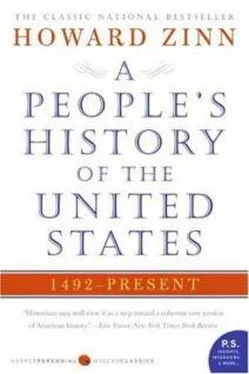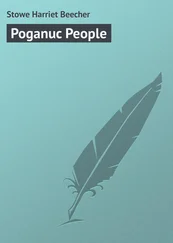Howard Zinn - A People
Здесь есть возможность читать онлайн «Howard Zinn - A People» весь текст электронной книги совершенно бесплатно (целиком полную версию без сокращений). В некоторых случаях можно слушать аудио, скачать через торрент в формате fb2 и присутствует краткое содержание. Издательство: Harper-Collins, Жанр: Фэнтези, на английском языке. Описание произведения, (предисловие) а так же отзывы посетителей доступны на портале библиотеки ЛибКат.
- Название:A People
- Автор:
- Издательство:Harper-Collins
- Жанр:
- Год:неизвестен
- ISBN:нет данных
- Рейтинг книги:4 / 5. Голосов: 1
-
Избранное:Добавить в избранное
- Отзывы:
-
Ваша оценка:
- 80
- 1
- 2
- 3
- 4
- 5
A People: краткое содержание, описание и аннотация
Предлагаем к чтению аннотацию, описание, краткое содержание или предисловие (зависит от того, что написал сам автор книги «A People»). Если вы не нашли необходимую информацию о книге — напишите в комментариях, мы постараемся отыскать её.
A People — читать онлайн бесплатно полную книгу (весь текст) целиком
Ниже представлен текст книги, разбитый по страницам. Система сохранения места последней прочитанной страницы, позволяет с удобством читать онлайн бесплатно книгу «A People», без необходимости каждый раз заново искать на чём Вы остановились. Поставьте закладку, и сможете в любой момент перейти на страницу, на которой закончили чтение.
Интервал:
Закладка:
Howard Zinn
A People's History Of The United States
The Note : This great book should really be read by everyone. It is difficult to describe why it so great because it both teaches and inspires. You really just have to read it. We think it is so good that it demands to be as accessible as possible. Once you've finished it, we're sure you'll agree. In fact, years ago, we would offer people twenty dollars if they read the book and didn't think it was completely worth their time. Of all the people who took us up on it, no one collected.
The disclaimer : This version is made from OCR. That is a fancy way of saying that we scanned in and coded over six hundred fifty pages. There will be a few small occasional errors: spelling mistakes, odd punctuation, and the like. If you see any, please contact us. We have posted it in spite of these mistakes for two simple reasons. First, the book is worth a mistake or two because it really deserves the widest audience possible. Second, we are sure that once you new people begin reading it, you'll go out and get a physical copy. You should go and get it (and ones for your friends and family). At this point, A People's History Of The United States is available in regular form, read aloud on audio, on posters, in a teaching edition, and as just the twentieth century chapters(We have all but the posters). And now here. Please Enjoy!
Columbus, The Indians, and Human Progress
Arawak men and women, naked, tawny, and full of wonder, emerged from their villages onto the island's beaches and swam out to get a closer look at the strange big boat. When Columbus and his sailors came ashore, carrying swords, speaking oddly, the Arawaks ran to greet them, brought them food, water, gifts. He later wrote of this in his log:
They… brought us parrots and balls of cotton and spears and many other things, which they exchanged for the glass beads and hawks' bells. They willingly traded everything they owned… They were well-built, with good bodies and handsome features… They do not bear arms, and do not know them, for I showed them a sword, they took it by the edge and cut themselves out of ignorance. They have no iron. Their spears are made of cane… They would make fine servants… With fifty men we could subjugate them all and make them do whatever we want.
These Arawaks of the Bahama Islands were much like Indians on the mainland, who were remarkable (European observers were to say again and again) for their hospitality, their belief in sharing. These traits did not stand out in the Europe of the Renaissance, dominated as it was by the religion of popes, the government of kings, the frenzy for money that marked Western civilization and its first messenger to the Americas, Christopher Columbus.
Columbus wrote:
As soon as I arrived in the Indies, on the first Island which I found, I took some of the natives by force in order that they might learn and might give me information of whatever there is in these parts.
The information that Columbus wanted most was: Where is the gold? He had persuaded the king and queen of Spain to finance an expedition to the lands, the wealth, he expected would be on the other side of the Atlantic-the Indies and Asia, gold and spices. For, like other informed people of his time, he knew the world was round and he could sail west in order to get to the Far East.
Spain was recently unified, one of the new modern nation-states, like France, England, and Portugal. Its population, mostly poor peasants, worked for the nobility, who were 2 percent of the population and owned 95 percent of the land. Spain had tied itself to the Catholic Church, expelled all the Jews, driven out the Moors. Like other states of the modern world, Spain sought gold, which was becoming the new mark of wealth, more useful than land because it could buy anything.
There was gold in Asia, it was thought, and certainly silks and spices, for Marco Polo and others had brought back marvelous things from their overland expeditions centuries before. Now that the Turks had conquered Constantinople and the eastern Mediterranean, and controlled the land routes to Asia, a sea route was needed. Portuguese sailors were working their way around the southern tip of Africa. Spain decided to gamble on a long sail across an unknown ocean.
In return for bringing back gold and spices, they promised Columbus 10 percent of the profits, governorship over new-found lands, and the fame that would go with a new tide: Admiral of the Ocean Sea. He was a merchant's clerk from the Italian city of Genoa, part-time weaver (the son of a skilled weaver), and expert sailor. He set out with three sailing ships, the largest of which was the Santa Maria , perhaps 100 feet long, and thirty-nine crew members.
Columbus would never have made it to Asia, which was thousands of miles farther away than he had calculated, imagining a smaller world. He would have been doomed by that great expanse of sea. But he was lucky. One-fourth of the way there he came upon an unknown, uncharted land that lay between Europe and Asia-the Americas. It was early October 1492, and thirty-three days since he and his crew had left the Canary Islands, off the Atlantic coast of Africa. Now they saw branches and sticks floating in the water. They saw flocks of birds.
These were signs of land. Then, on October 12, a sailor called Rodrigo saw the early morning moon shining on white sands, and cried out. It was an island in the Bahamas, the Caribbean sea. The first man to sight land was supposed to get a yearly pension of 10,000 maravedis for life, but Rodrigo never got it. Columbus claimed he had seen a light the evening before. He got the reward.
So, approaching land, they were met by the Arawak Indians, who swam out to greet them. The Arawaks lived in village communes, had a developed agriculture of corn, yams, cassava. They could spin and weave, but they had no horses or work animals. They had no iron, but they wore tiny gold ornaments in their ears.
This was to have enormous consequences: it led Columbus to take some of them aboard ship as prisoners because he insisted that they guide him to the source of the gold. He then sailed to what is now Cuba, then to Hispaniola (the island which today consists of Haiti and the Dominican Republic). There, bits of visible gold in the rivers, and a gold mask presented to Columbus by a local Indian chief, led to wild visions of gold fields.
On Hispaniola, out of timbers from the Santa Maria , which had run aground, Columbus built a fort, the first European military base in the Western Hemisphere. He called it Navidad (Christmas) and left thirty-nine crewmembers there, with instructions to find and store the gold. He took more Indian prisoners and put them aboard his two remaining ships. At one part of the island he got into a fight with Indians who refused to trade as many bows and arrows as he and his men wanted. Two were run through with swords and bled to death. Then the Nina and the Pinta set sail for the Azores and Spain. When the weather turned cold, the Indian prisoners began to die.
Columbus 's report to the Court in Madrid was extravagant. He insisted he had reached Asia (it was Cuba) and an island off the coast of China (Hispaniola). His descriptions were part fact, part fiction:
Hispaniola is a miracle. Mountains and hills, plains and pastures, are both fertile and beautiful… the harbors are unbelievably good and there are many wide rivers of which the majority contain gold… There are many spices, and great mines of gold and other metals…
The Indians, Columbus reported, "are so naive and so free with their possessions that no one who has not witnessed them would believe it. When you ask for something they have, they never say no. To the contrary, they offer to share with anyone…" He concluded his report by asking for a little help from their Majesties, and in return he would bring them from his next voyage "as much gold as they need… and as many slaves as they ask." He was full of religious talk: "Thus the eternal God, our Lord, gives victory to those who follow His way over apparent impossibilities."
Читать дальшеИнтервал:
Закладка:
Похожие книги на «A People»
Представляем Вашему вниманию похожие книги на «A People» списком для выбора. Мы отобрали схожую по названию и смыслу литературу в надежде предоставить читателям больше вариантов отыскать новые, интересные, ещё непрочитанные произведения.
Обсуждение, отзывы о книге «A People» и просто собственные мнения читателей. Оставьте ваши комментарии, напишите, что Вы думаете о произведении, его смысле или главных героях. Укажите что конкретно понравилось, а что нет, и почему Вы так считаете.












